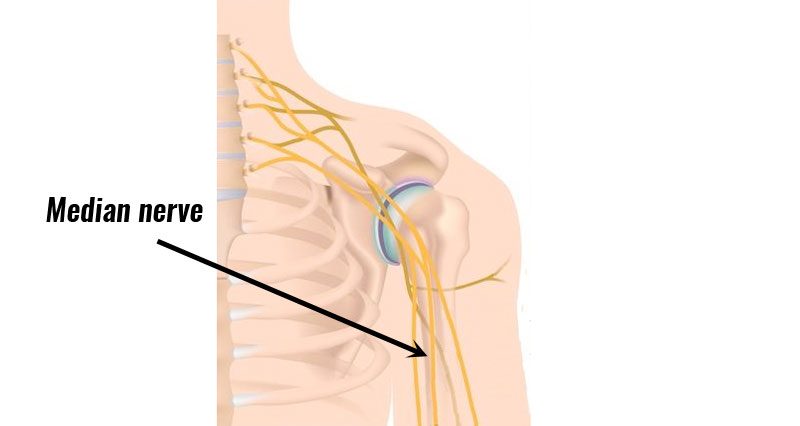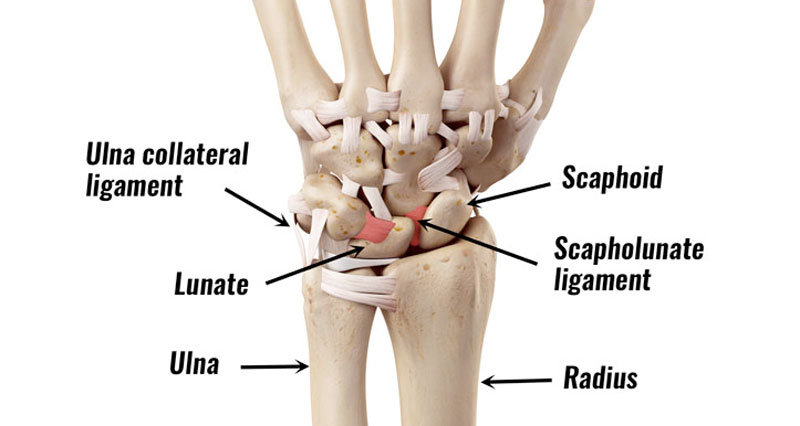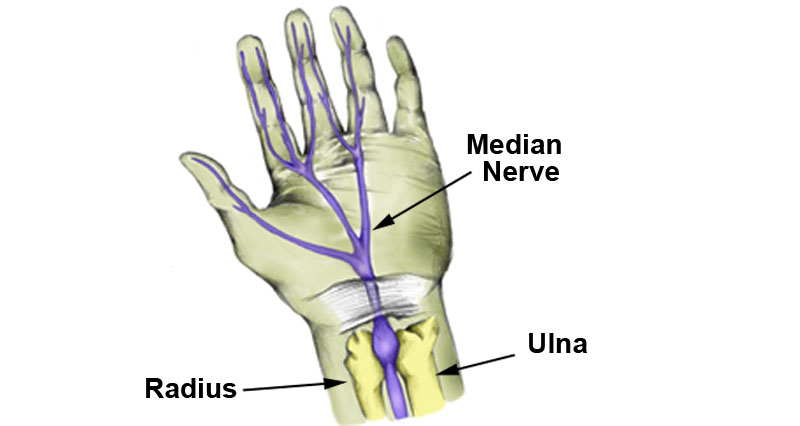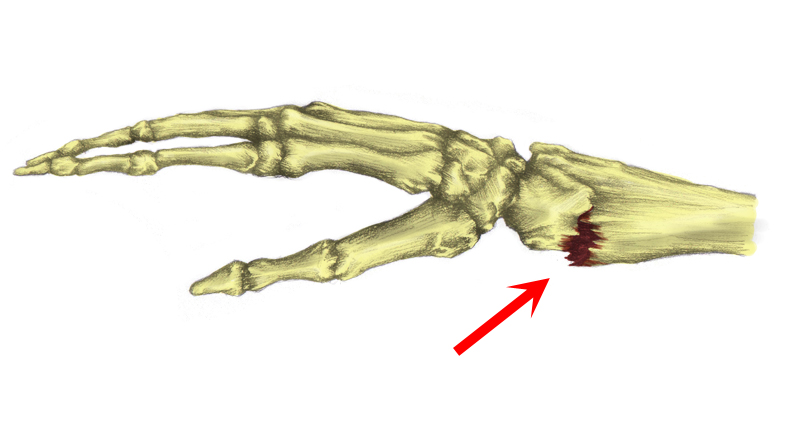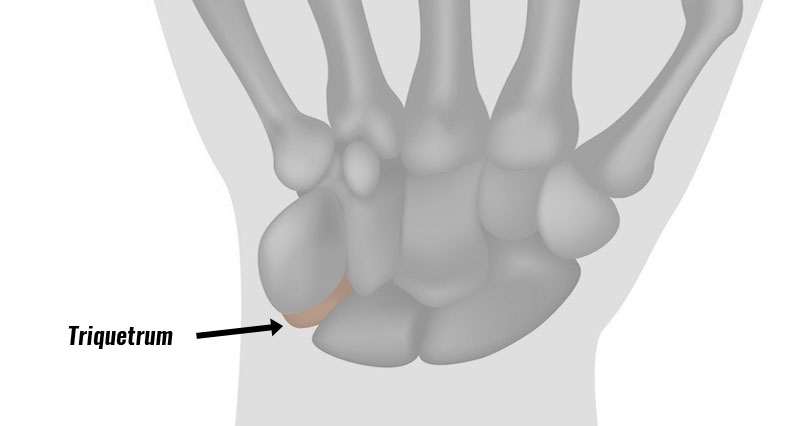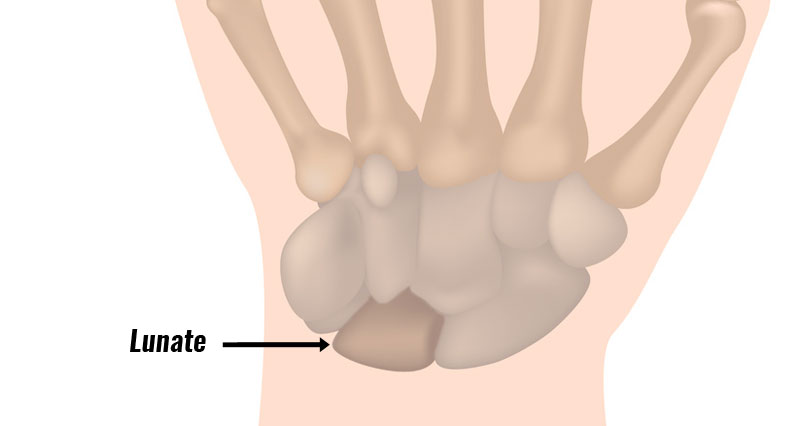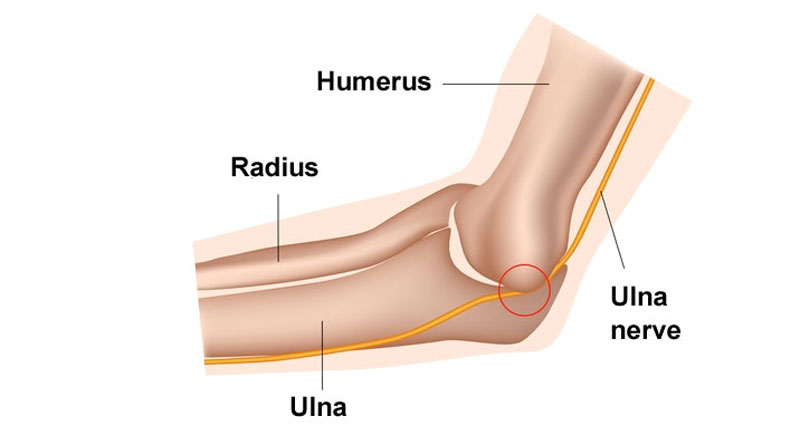Anterior Interosseous Syndrome is the entrapment of a branch of the Median nerve, just above the elbow. The nerve becomes compressed, causing symptoms of pain in the upper arm and difficulty moving the thumb, index finger, and middle finger.
Symptoms
Symptoms include:
- Difficulty moving your index and middle fingers.
- Or you may have a specific weakness in these fingers.
- Bending the last joint of your thumb may be hard to do, as well as the index and middle fingers.
- Pain in the upper forearm, sometimes as high as the elbow.
Pinch test
Assessment tests
If you pinch your index finger and thumb together, it normally forms a circle. However, if you have Anterior Interosseous syndrome, the end (distal) joints in the thumb and index fingers are straight, rather than bent.
The ‘Pinch Grip’ test identifies compression of the median nerve.
What causes Anterior Interosseous Syndrome?
Compression of the median nerve within the forearm causes Anterior interosseous syndrome. The branch of the median nerve travels down the forearm and supplies the Flexor Digitorum Profundus, Flexor Pollicis Longus, and Pronator Quadratus muscles.
There are a number of structures that cause this to happen for various reasons. These include:
Enlarged bursa
An enlarged biceps tendon bursa. A bursa is a small sack of fluid found between a tendon and bone. its function is to aid movement of the tendon.
Fractures
Fractures, in particular supracondylar fractures of the humerus bone, just above the elbow.
Other traumatic injuries including dislocations can also result in Anterior interosseous syndrome.
Pronator teres
The head (end) of Pronator teres muscle arising deeper than usual. The pronator teres muscle connects the humerus to the radius bone and enables the forearm to pronate (turn inwards).
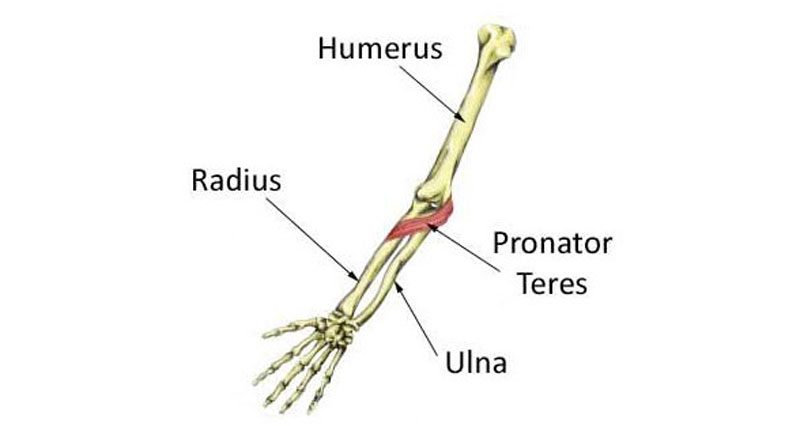
Thrombosis
Thrombosed radial or ulnar arteries compressing the nerve. A thrombosis is a blot clot.
Treatment
Initial conservative treatment for Anterior interosseous syndrome is rest, splinting, and anti-inflammatory medications.
Always check with your doctor before taking medications. Ibuprofen is a popular anti-inflammatory drug, but you should not take this if you have Asthma.
Corticosteroid or nerve block injections may be used.
Surgery to releases the nerve if conservative treatment fails.
